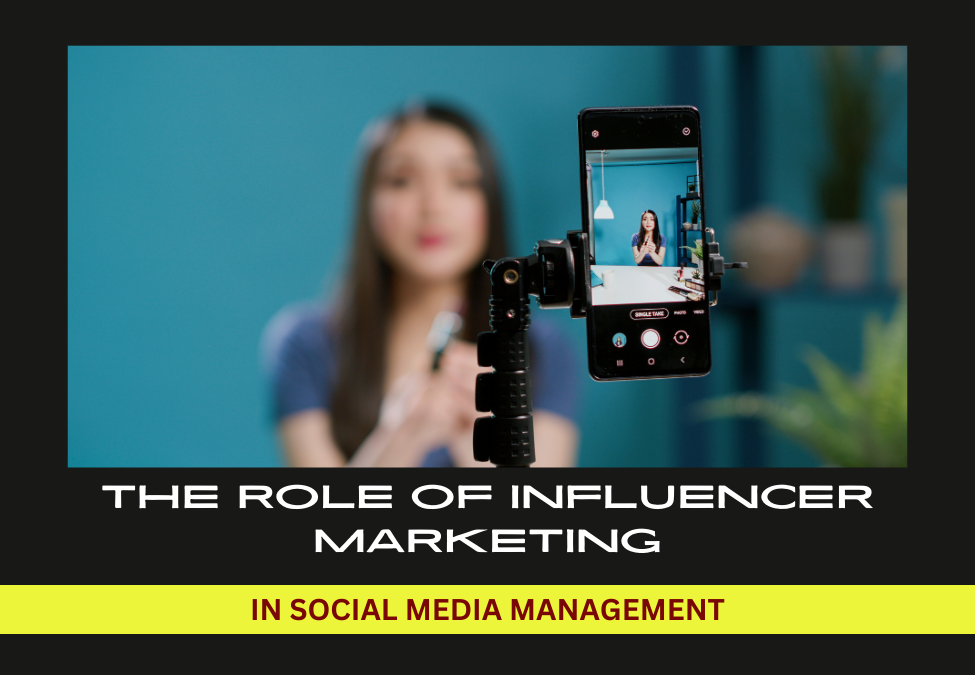Sales is what every brand wants to accomplish through influencer marketing. Earlier, people used to rely on celebrities to endorse their products for increased sales. However, one day, Daniel Wellington, founder of a luxury watch brand, decided to ditch this traditional marketing method. He selected influencers on Instagram to launch a Swedish luxury watch in 2011. And since then, there has been no looking back for influencer marketing.
Today, in 2024, around 70% of marketers plan to invest in influencer marketing. Influencers invite people to buy something or change their minds about buying any product or service.
These people can drive sales for a business because, according to research, more than 65% of consumers trust the recommendations of influencers when buying a product.
If you are also planning to leverage the power of influencer marketing, understand its role in social media management. It will be a great move toward achieving enhanced sales. This blog will help you understand how individuals with large, engaged social media followings can promote brands and manage social media presence.
What Is Influencer Marketing?
Influencer marketing is a way to use the most popular social media users with many followers for marketing purposes. This type of marketing is a collaboration between popular social media users and marketers. Influencers have a sizable social media following, and markets use their popularity to reach wider audiences.
However, 28% of social media marketers struggle to keep up with influencer marketing. They need to check three things mainly before collaborating with Influencers.
- Number of Followers
- Credibility
- Niche
Although these are the core selection areas, many others also affect how you select influencers to manage your social media account. Let’s begin understanding the same with the types of influencers.
Types of Influencers
To understand the role of influencer marketing in social media, you need to first learn about the types of influencers. We have categorized influencers based on their number of followers.
- Mega Influencers (1+Million Followers):
Mega influencers come under the highest-ranking category in the social media influencers list. They are more famous and charge more than other types of influencers for social media management. These influencers mostly focus on lifestyle in their Instagram content.
Jay Nagy is a mega influencer; he creates videos on TikTok that are related to lifestyle and family.
- Macro Influencers (100k-1 Million Followers):
These influencers can also have 1 million followers but are less popular than mega influencers. They tend to come from television and sports. Well, they still don’t appear on the A-list celebrity list.
PewDiePie is a famous macro influencer on YouTube. He mainly creates gaming content.
- Micro-Influencers (10K-100K Followers):
Micro-influencers have fewer followers than the other two we discussed above. They have a following between 10,000 and 100,000. Many small businesses hire them for social media management.
Adam Gonon is a micro-influencer on Instagram. He posts menswear and lifestyle content.
- Nano Influencers (1K-10K Followers):
Nano influencers have fewer followers than the types we have discussed until now. They are everyday social media users and less popular. However, many marketers leverage their power for UGC content. They even hire nano influencers 44% more than other influencers in 2024. Have a look at the statistics below.
What Influencers Influence?
Since you are going to use influencers for your social media management, you should know what exactly they influence. Here is what they influence.
- Consumer Shopping Behavior
- Customer Engagement
- Trends and Fashion
- Social Proof
- Sales Conversion
So, influencer marketing can be the reason you have booked your next holiday in Greece, bought a product from a new site, or changed your perception about a company.
How Are Influencers Different From Traditional Celebrities?
Influencers differ from celebrities in many ways.
- Celebrities don’t build their fame only using social media, while influencers only build their brand image on social media. Influencers emerge because of social channels.
- Influencers directly engage with their followers or audience by creating relatable content. Celebrities can be popular on social media, but their main work is not to create content for social media.
- Influencers are niche-focused. They create content for food, clothes, fashion, fitness, or lifestyle.
- Celebrities rely on traditional media to be in the limelight. On the other hand, influencers rely on social media followings to stay popular.
The Impact of Influencer Marketing on Social Media Management
Influencer marketing has changed the way people utilize the power of social media. Let’s explore how in the space below.
- Expanding Reach:
Influencers help businesses reach new audiences and potential customers. Reaching a large audience is the first step in the business. You can miss out on the opportunity to sell your products to potential customers if they don’t even know about you.
Since influencers have a vast number of followers, they can bring your product to the forefront of a lot of people with just one post. So, they can increase your brand awareness even faster than other traditional ways of marketing.
- Building Trust:
Do you also trust what influencers think about a product? A lot of people trust influencers more than celebrities to buy anything online. When an influencer endorses your product or service, it feels genuine. Audiences consider influencers as common people or like them, so they whatever they endorse. Gen Z trusts influencers more than celebrities. Around 45% of GenZers in Europe like to buy clothes they see influencers wearing (The Drum).
They help build brand trust, which is vital for driving traffic to the site and increasing sales. They succeed in doing the same because they share personal stories and experiences. Their endorsement is social proof that real people have used the product.
- Creating Engaging Content:
Influencers are skilled content creators. Businesses can utilize this skill to create engaging content for their potential customers and gain effective engagement. If you run a business, you can hire an influencer to create and upload content for your business on their social channel.
Since their content seems genuine and connected to common interests, it can greatly impact your audience and help you achieve your business goals faster. But always focus on hiring niche-specific influencers who resonate with your industry and business. For example, hiring a food vlogger will not make any sense if you are a clothing brand.
- Targeting Specific Audiences:
Influencers target specific audiences and have specific fan bases. By collaborating with niche-specific influencers, brands can ensure their messaging is relevant to the audience. For example, Avani Gregg. She is an American fashion content creator. She has gained international popularity by creating fashion-specific videos and has followers who love fashion.
So, brands who sell clothes and fashion accessories can collaborate with her to target specific audiences. Similarly, collaborating with influencers based on your business and products will help you gain potential customers quickly.
- Driving Interaction:
Did you know 75% of people use social media to check the reviews and experiences of others before purchasing anything? Yes, social media has not remained a mere platform to chat and sneak peek into others’ lives; it is more of an emerging reliable platform to check reviews and feedback about a product or service. It is because of influencers and many UGC content creators.
They can easily connect with people through their content. Posts by influencers often create higher engagement rates, which also encourages conversion rates. They create authentic and genuine content that resonates with their audience. People connect more with their personal stories.
- Providing Insights:
Influencers discuss the product in detail while reviewing it in their posts, providing insights into the product and topic. They have a unique style of talking about a product, service, or idea that sounds genuine because they are not celebrities. They are common people with impressive followers, so people connect with them more.
Moreover, they can analyze their followers’ reactions to the product by reading comments and sharing their insight with the brand. Likes, shares, and views on the post indicate whether the audience likes the product.
Wrapping Up
Influencer marketing is the future of marketing. Leveraging its power improves brand awareness, engagement, and conversion rate. However, merely collaborating with an influencer will not help. Understand the difference between various influencers and whether they fit your business goals. By collaborating with influencers, you can expand your business reach, build trust with your audiences, post engaging content, and create connections. Reaching billions of people can become possible when influencers manage your social media.










